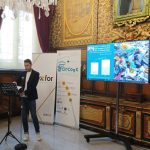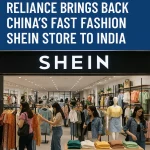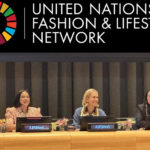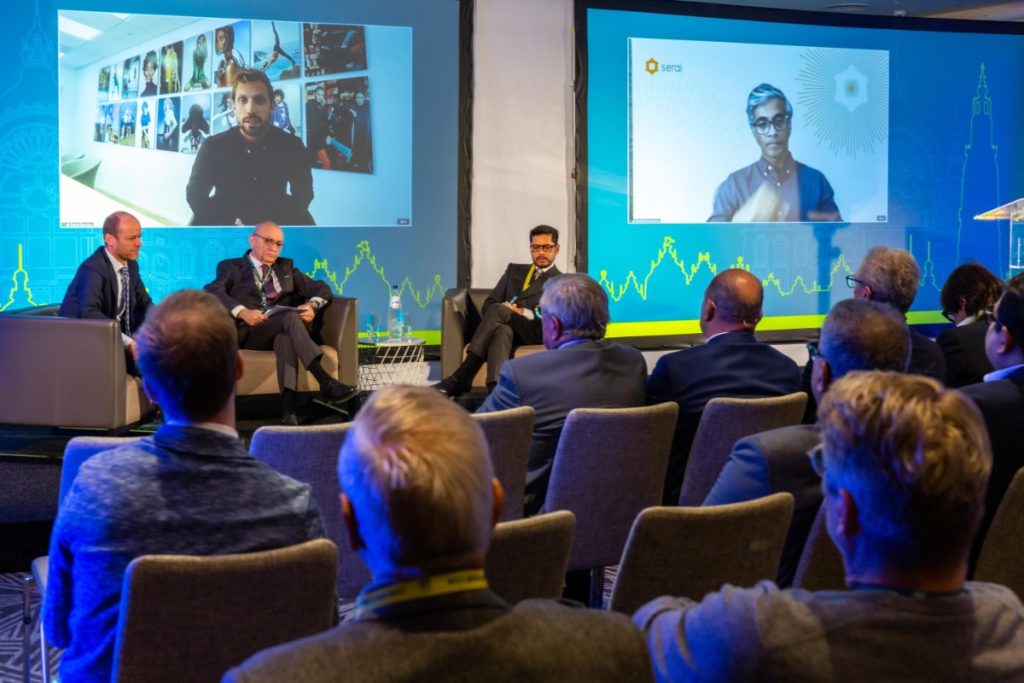
The theme of the IAF Convention is ‘Transition of the Global Fashion System’ with transition being the operative word. The theme recognizes the fact that the demand from societies and from consumers, the restraints posed by the earth’s ecosystem and the possibilities offered by technology converge to create a necessity for rapid change. The pandemic really pressed home the point that merely adapting is not enough in 2021. The massive demand crisis caused by the pandemic exacerbated the structural problems that were already visible, as witnessed by multiple bankruptcies of large established retailers and brands before the pandemic.
The 36th IAF World Fashion Convention themed ‘Transition of the Global Fashion System’ was held on November 8, 2021 at the Antwerp Hilton Old Town in Belgium. The Convention was a physical event, with a nearly full house. To facilitate those delegates who were not able to be physically present, both the IAF and the EURATEX Conventions were live streamed and recorded.
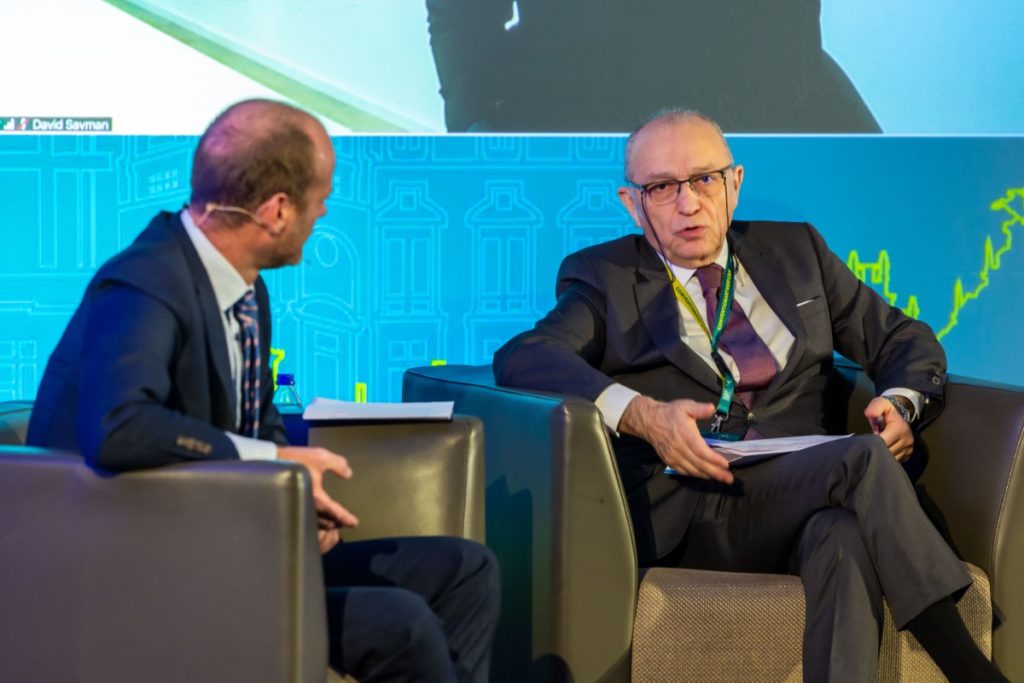
The theme ‘Transition of the Global Fashion System’ was approached through the perspective of collaboration in the global supply chain. Sessions focusing on new business models, digitalization, supply chain resilience and transparency all highlighted the necessity of buyers and their suppliers working together to create the transition the apparel industry needs. The composition of the Convention’s delegates, from across the world and spanning the supply chain with a strong representation of (SME) brands and manufacturers further highlighted the Convention’s core message: Buying brands, retailers and supplying manufacturers rely on each other equally to create supply chains that are resilient enough to withstand the rough ride of the apparel industry’s transition.
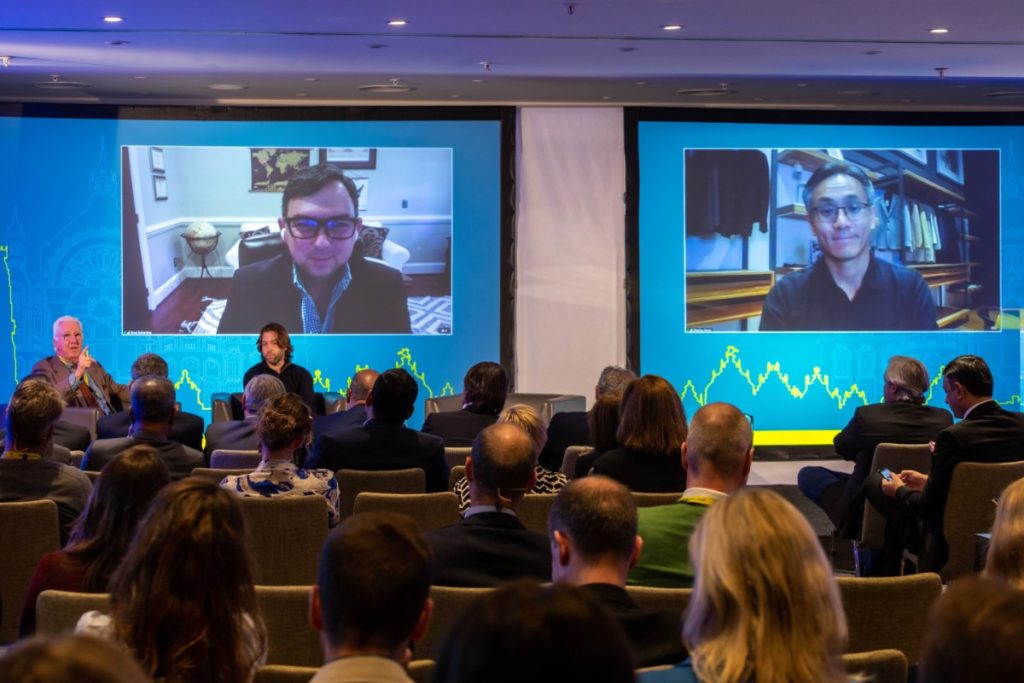
For example, one of the sessions on new business models, named ‘E-Fashion in Manufacturing’ and led by analyst and adviser John Thorbeck, brought together a US manufacturing brand, a European fashion tech company and an innovative Asian manufacturer. Brad Ballentine of Fox River Mills, Gonçalo Cruz of PlatformE and Stanley Szeto of Lever Style was interviewed by John Thorbeck on the way their businesses reflect the industry’s transition and how risk shared across the supply chain and the quest for zero waste are key elements of that quest.
The Convention bought together senior apparel industry representatives from across the supply chain.
Speakers at the 36th IAF World Fashion Convention
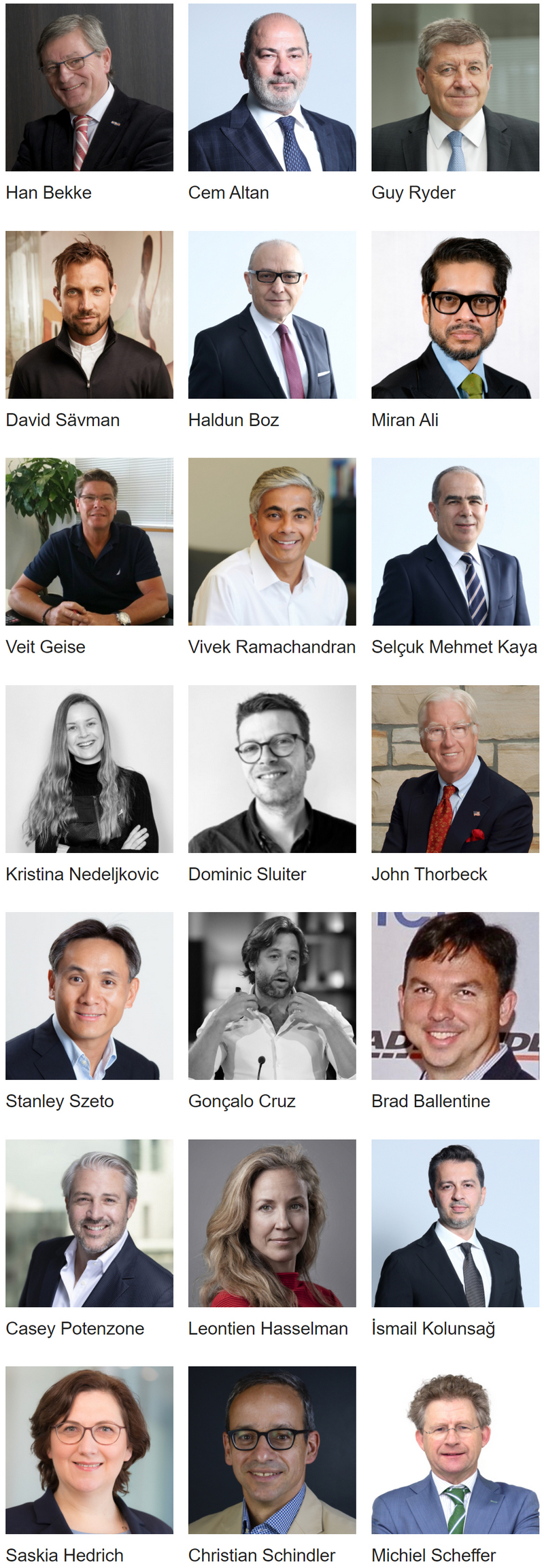
Speakers at the 36th IAF World Fashion Convention
‘Transition of the Global Fashion System’ (Programme)
| Time | Session | Overview | Speaker |
|
09:30 10:00 |
Welcome
|
Presentation of the theme of transition
– Comments on transition from the perspectives of government and industrial relations and the future of work – Positioning of the IAF as global federation uniting the entire fashion system with a particular focus on the crucial collaboration between buyers and their suppliers. |
Han Bekke, Immediate Past President IAF
Cem Altan, IAF President Guy Ryder, Director General ILO |
| 10:00
11:00 |
Panel Session
|
Supply Chain Collaboration
A global retailer’s objective to move from transactional relations in the supply chain to business partnerships
A perspective on collaboration from a manufacturer creating value. The perspectives of a united manufacturers’ voice. Discussion about jointly envisioned supply chains dominated by buyer-supplier collaboration |
David Sävman, H&M Haldun Boz*, Nova Fashion Group Miran Ali, Bitopi Group/BGMEA Vivek Ramachandran, Serai
|
| 11:00
11:30 |
Coffee Break | ||
| 11:40
12:30 |
Panel Session
|
Digitalisation of the apparel and textile industries. What does digitalization look like now and in five years and how can implementation be accelerated. How does digitalization depend on process change and how do changed processes enable a more value driven and equitable buyer-supplier relationship. | Mehmet Kaya*, TYH
Kristina Nedeljkovic, 3DKN Dominic Sluiter (moderator), button-up |
| 12:30
14:00 |
Lunch | ||
| 14:00
14:45
|
Interview
|
E-Fashion in Manufacturing What is e-fashion versus e-commerce? How do you compete with Shein? Alibaba? Amazon? This session redefines the 4 P’s for global retailers and suppliers: platform, process, product and purpose. Innovation for shared risk and zero waste begins upstream in the retail supply chain. What are the success stories and metrics in European luxury, US retail and Asia manufacturing? |
John Thorbeck interviews:
Stanley Szeto, Lever Style Gonçalo Cruz, PlatformE
|
| 14:45
15:30 |
Panel Session
|
Towards a More Transparent and Circular Supply Chain. The apparel industry cannot anymore operate at arm’s length from the textile industry. The industry needs better grip on the origin and impact of the materials it uses. Through circular models the apparel industry needs to be part of its own raw material base. |
Veit Geise, VF Asia Leontien Hasselman-Plugge, SIM Bülent Özipek*, Istanbul University |
| 15:30
16:00 |
Break | ||
| 16:00
16:45 |
Presenta-tions |
Overview of Global Apparel and Textile Business Trends
|
Saskia Hedrich, McKinsey Christian Schindler, ITMF Michiel Scheffer, Wageningen University & Research |
| 16:45
17:00 |
Closing Session
|
Next Convention presentation
Conclusions and closing |
Faruque Hassan, President BGMEA
Cem Altan, IAF President |
* IHKIB Board Members
New successful companies based on entirely different business models shape the industry’s transition, as do existing companies embarking on bold programs of change. Technology, particularly digitalization, plays a key role, as does better buyer-supplier collaboration. Transition will not involve the industry alone but requires all in the entire fashion ecosystem to work together. It requires a good and close collaboration with governments, creating regulatory environments that are supporting transition without stifling entrepreneurial drive. Educational institutes are engines of transition not only by training new employees, but also by actively nurturing new business.
Key message
This convention was a unique fashion industry event bringing together the entire global industry ecosystem to hear high level industry insights and to jointly discuss concrete actions involving the entire industry ecosystem to create faster industry transition.
